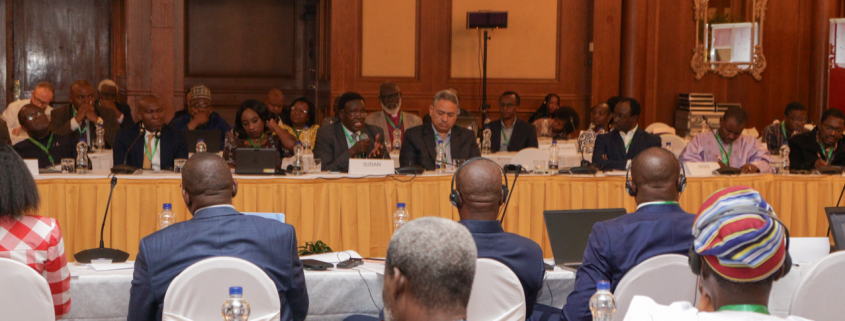Inaugural AEA Fasau 2063 summit advancing religious freedom in Africa
Addis Ababa, Ethiopia
The FASAU 2063 Summit, convened on April 11-12, 2024, at the Sheraton Hotel in Addis Ababa where over 100 participants to discuss and promote religious freedom across Africa.
The objective of the summit was to address the limitations on Freedom of Religion and Belief (FoRB) in Africa, and to foster inter-religious dialogue. One of the goals was to raise awareness among political influencers and government officials about the persecution of Christians in their countries. Discussions highlighted the benefits of a strong, thriving church for societal cohesion and the importance of inter-religious dialogue in reducing hostility.
A significant outcome of the summit was the enhanced engagement between the church and the states represented. Government and church leaders engaged in meaningful dialogue, setting the stage for ongoing discussions and the creation of engagement platforms for future collaboration. A partnership between AEA and the African Union’s Citizens and Diaspora Directorate (AU CIDO) was established, opening new channels for communication and cooperation.
Experts and Researchers from various fields made presentations at the two-day summit which will be published by AEA in a compendium.
Please click here to find out more about the speakers and the topics covered. Insert FASAU Booklet link here
Additionally, the summit highlighted the need for greater inclusion of women, youth, and persons with disabilities, calling for a more representative participation in future events and initiatives.
Participants shared testimonials, reflecting the depth of discussions and the urgency of the issues addressed:
Idi Dan Bouzou Samaila (Niger Government official):
“The only way out for Africa to keep its youth unavailable for radicalisation and religious intolerance it to create employment opportunities for them”
Dr. Alphonce Teyabe (General Secretary, Evangelical Alliance of Cameroon):
“Youth engagement and sensitization can reduce their availability for religious radicalisation.”
Desire Nitunga (Burundi Government official):
“On the matter of inter-religious forums, the church needs to promote dialogue by creating forums where solutions to the challenge of intolerance are discussed. It also calls for self-reflection – how does one perceive others who belong to a different religion?”
Tshenolo Florence Omphitlhetse (Botswana government official):
“Africa believes it is independent but the truth is we are still colonized by how we think about ourselves. 60% of all the arable land globally is in Africa which also has the largest deposits of platinum, diamonds and gold among other resources. The irony is that Africa is a net importer of all the products made from these natural resources including food. What are the underlying factors? There is need for a mindset change/a paradigm shift and also a call for divine intervention. The mindset change must be radical otherwise 2063 will come and go and nothing will have changed and this must happen in CSOs, governments and most importantly, the faith sector…”
Rafat Samir, General Secretary, (Evangelical Alliance of Sudan):
“Nations should not be built on a religious or tribal identity because of the danger of going to the extreme (which brings about religious and ethnic persecution).”
Moving forward, the AEA plans to strengthen its representation through research and advocacy and encourage National Evangelical Fellowships (NEFs) to hold similar forums. The focus will be on enhancing monitoring and evaluation efforts and building capacity within NEFs to sustain and expand the FASAU 2063’s impact.
As the AEA continues its mission towards holistic community transformation and the protection of religious freedom, the outcomes and insights gained from the FASAU 2063 Summit will guide its future initiatives, promoting a more inclusive and resilient environment for faith communities across Africa.



